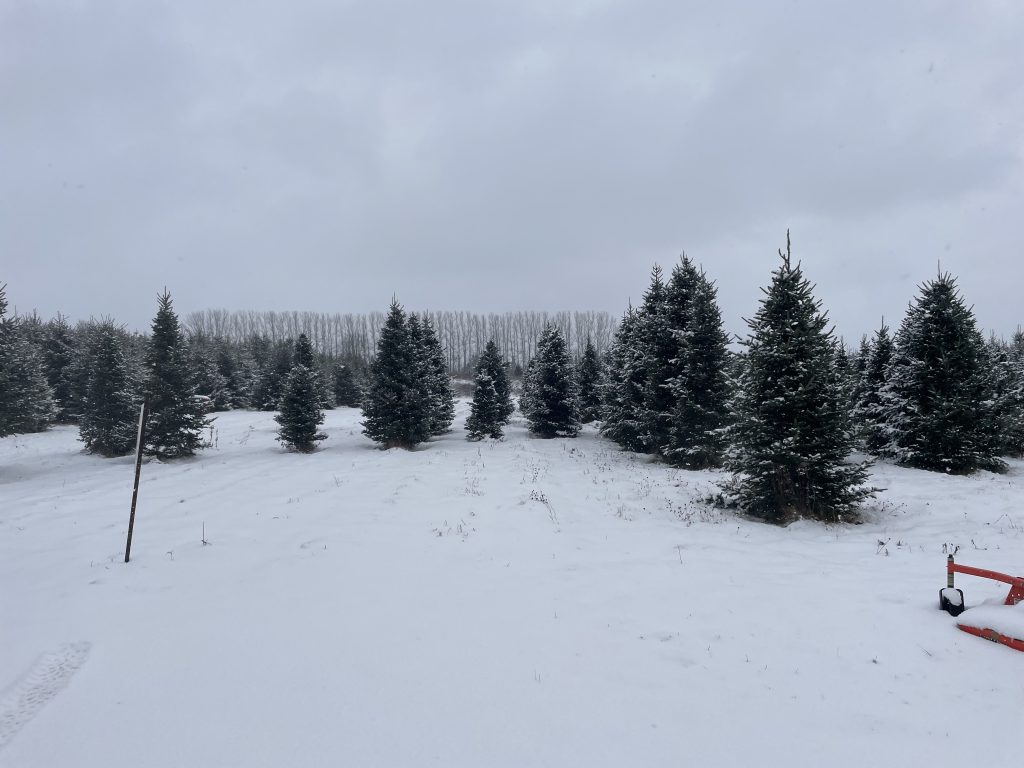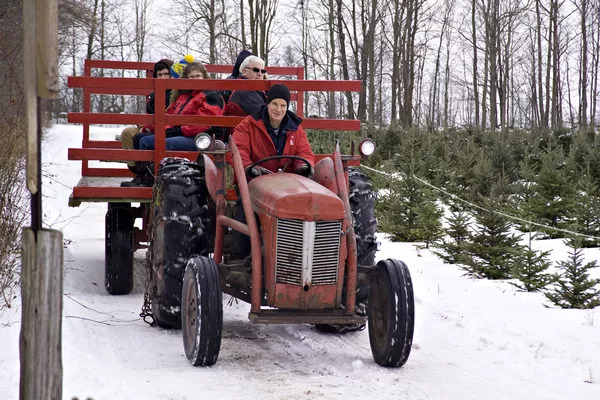For the first time ever, Mark MacGowan lost 300 almost ready-to-harvest Christmas trees in 2024.
The family-owned and operated MacGowans Christmas Tree Farm just north of Kinburn, has been operating for over 20 years. The farm is just like one would picture: Over 40 acres of trees, snow-topped branches, a tractor ride and the smell of campfires and hot chocolate filling the air.
MacGowan, who sits on the board of directors of The Christmas Tree Farmers of Ontario, said he has never lost such a large amount of mature trees. This summer’s wet weather likely is to blame.
“Because the clay soils that part of the farm is in was too wet, even though they’re drained fields, they were so wet all summer that some trees got root rot and they died,” MacGowan told CityNews in an interview.
In any given year, MacGowan said he can lose between 5 to 10 per cent of young trees due to a variety of factors, but the ones that died over the summer were supposed to be available to Ottawa families in 2025.
“We won’t feel the pain for a few yearr. But when my customers want to cut those trees, then I will have a gap,” he said. “So I’ll have to look at whether I source some additional pre-cuts through another farm operator.”
What is most surprising to the family is that they have taken precautions over the last several years to avoid losing trees due to severe weather. They expect to have drier and wetter seasons and to accommodate they use irrigation devices throughout the farm from the Mississippi River and have drains in the fields.
Another mitigation plan they have implemented is planting more trees than they expect to sell, in the instance that they lose trees. But the preparations don’t come without risks.
“Then you’re paying to take care of more than you need for 10 years, and if they survive, then you need to get rid of them, or you or you have too many,” he said.



Open Gallery 3 items
Being on The Christmas Tree Farmers of Ontario board, MacGowan is able to meet other farmers and talk about how to adapt to severe weather and dying trees.
Across the city near North Gower, Ian Thomas has also prepared to keep the long-running tree farm with homegrown supply. Thomas Tree Farm sits on a 50-acre property. Its winter-wonderland experience starts with either a tractor ride to the back or a short walk and then it’s hot chocolate and cookies before warming up by the fire.
Luckily the farm has not lost any trees this year due to excessive rain.
“I never even used the you never used the irrigation system once, because we just had rain every week,” Thomas told CityNews in an interview.
Like MacGowan, Thomas has tile-drained the land around the trees to keep water from building up. Root rot is one of the fastest ways to kill the trees, with some dying in as little as 24 hours, he said.
“In 2017 there was a huge rainstorm, maybe 100 millimetres in Ottawa, it was crazy, and that’s when my parents owned the business, and they lost about 100 trees in one area of the property,” Thomas said.
Although farmers seem to have figured out dry and wet seasons, Thomas said they can’t prepare for everything.
“It’s up to the elements at that point,” he said. “If we get a derecho or wind storm coming through…that could cause significant damage to your crop, but hopefully that’s a low probability.”


Christmas tree market is booming
Despite recent supply struggles due to the COVID-19 pandemic, Canadian Christmas Tree Association officials tell CityNews the industry is booming, from $53 million in 2015 to more than $100 million this year.
However, like many industries, the costs associated with rising inflation have impacted tree farmers. The price of fertilizer, fuel, labour costs, and insurance has grown, causing the price tag of Christmas trees also to increase. Depending on the type and size of the tree, they can range anywhere from $80 to $300. But officials say the recent jump isn’t as bad as in previous years.
Experts say that the increase is around 5 per cent.
With files from CityNews’ Catalina Gillies and Lucas Casaletto.